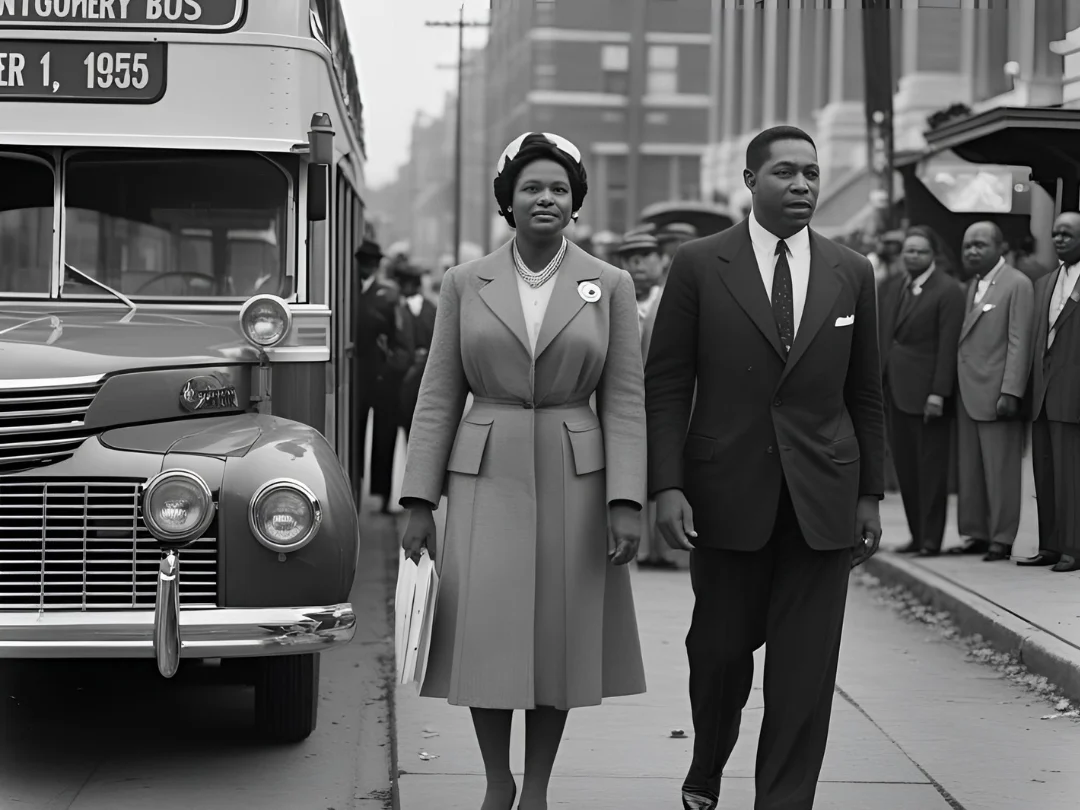Rosa Parks Life Biography: The Woman Who Sparked a Movement
Few individuals in history have left an indelible mark on humanity like Rosa Parks, the woman whose quiet strength ignited a revolution for freedom and equality. Known as the “Mother of the Civil Rights Movement,” Parks’ act of defiance on a bus in Montgomery, Alabama in 1955 reshaped America’s moral compass and challenged centuries of racial injustice. This article dives deep into her early life, challenges, achievements, and lasting legacy.
Early Life of Rosa Parks
Rosa Louise McCauley was born on February 4, 1913, in Tuskegee, Alabama. She grew up in a deeply segregated society shaped by Jim Crow laws that enforced racial separation. Her parents, James McCauley, a carpenter, and Leona Edwards, a teacher, separated when Rosa was young. She spent much of her childhood with her maternal grandparents in Pine Level, Alabama, who instilled in her values of resilience and faith.

From an early age, Rosa witnessed the harsh realities of racial inequality. She recalled moments when African-American children had limited access to education while white children were provided with better facilities and opportunities. Despite these challenges, Rosa pursued her studies, attending segregated schools and later enrolling in the Montgomery Industrial School for Girls, where she was taught the importance of discipline and Christian values.
Education and Early Influences
Rosa’s education was interrupted when she had to care for her grandmother and later her mother. However, her exposure to the African Methodist Episcopal Church shaped her sense of justice and spiritual strength. At the age of 19, Rosa married Raymond Parks, a barber and an active member of the National Association for the Advancement of Colored People (NAACP). Raymond’s involvement in civil rights deeply influenced Rosa, encouraging her to stand firm against oppression.
The Road to Activism
In the 1940s, Rosa Parks became actively involved in civil rights causes. She worked as a seamstress to support herself but dedicated much of her time to NAACP activities. She served as the secretary of the Montgomery chapter, where she recorded testimonies of victims of racial violence and fought for justice in the courts. Her work brought her into close contact with E.D. Nixon, a prominent activist who mentored her in leadership and advocacy.
During these years, Rosa Parks gained a reputation for her courage and determination. She investigated cases of racial injustice, including assaults on African-American women, showing her deep concern for both racial equality and women’s rights.
The Montgomery Bus Boycott
On December 1, 1955, Rosa Parks made history.

While riding a segregated bus in Montgomery, she refused to surrender her seat to a white passenger. Her quiet act of resistance led to her arrest, sparking outrage across the African-American community. This single moment became the catalyst for the Montgomery Bus Boycott, a mass protest against racial segregation in public transportation.
The boycott lasted 381 days, during which thousands of African-Americans refused to ride city buses. This movement was strategically led by Dr. Martin Luther King Jr., who was then a young pastor in Montgomery.

Rosa’s courage became the symbolic flame that inspired millions to rise against injustice.
Ultimately, the boycott led to a Supreme Court decision declaring segregation on public buses unconstitutional, marking a monumental victory in the struggle for civil rights.
Challenges and Struggles
Despite her heroism, Rosa Parks faced severe challenges after her arrest. She lost her job as a seamstress and received threats to her safety. Financial hardship forced her and her husband to relocate to Detroit, Michigan. Yet, Rosa remained unwavering in her commitment to justice, continuing her activism through the NAACP and other organizations.
Her struggles highlight the heavy price activists often pay for change. Rosa endured poverty, harassment, and discrimination, but her determination never wavered.
Life in Detroit and Continued Activism
In Detroit, Rosa worked with Congressman John Conyers as a secretary and receptionist from 1965 to 1988. She used her platform to address issues of racial inequality, housing discrimination, and police brutality. Her activism expanded beyond Montgomery, making her a national and international figure in the fight for human rights.
Recognition and Awards
Rosa Parks’ contributions did not go unnoticed. She received numerous awards and honors, including:
- Presidential Medal of Freedom (1996), presented by President Bill Clinton
- Congressional Gold Medal (1999), one of the highest honors in the United States
- Countless tributes from civil rights groups, schools, and international organizations
Her name is etched in history as a civil rights icon, representing courage and equality.
Personal Beliefs and Faith
Rosa Parks was deeply rooted in her Christian faith. She often spoke of prayer as her source of strength during difficult times. Her personal life with her husband Raymond Parks reflected resilience and partnership in activism. Though they never had children, their shared dedication to justice became their life’s mission.
Legacy of Rosa Parks
Rosa Parks passed away on October 24, 2005, at the age of 92. Her legacy continues to inspire generations worldwide.

She remains a symbol of courage, women’s empowerment, and the power of peaceful resistance. Countless schools, streets, and monuments have been named in her honor, ensuring her story lives on.
Her life reminds us that one individual’s act of defiance can transform the world. She stood not just for African-Americans, but for all who seek justice, dignity, and equality.
Conclusion
Rosa Parks’ biography is not just the story of one woman; it is the story of a nation’s struggle for freedom. From her humble beginnings in Alabama to her role in sparking the Civil Rights Movement, Rosa Parks showed that ordinary people can create extraordinary change. Her courage reshaped history, leaving a lasting mark on humanity’s journey toward justice.












Leave a Reply